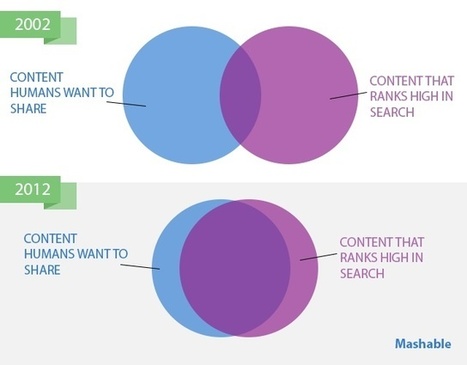Content Marketings Day of the Dead riffs a Cendrine Marrout post asking Is Content Marketing Dead on B2B News Network and the answer is YES and NO.
Research and publish the best content.
Get Started for FREE
Sign up with Facebook Sign up with X
I don't have a Facebook or a X account
Already have an account: Login
 Your new post is loading... Your new post is loading...
|

Guillaume Decugis's comment,
February 13, 2013 6:38 PM
Hi Therese - The way we see it (and please bear in mind that Lean Content is a concept still being defined), Lean Content is not about "Information diet" or trying to refrain from creating Content. We are definitely in a world of content inflation. So how do we cope with this? Part of the best practices we've seen being done come around faster content creation cycle, leveraged content distribution, content curation, etc... Faster content creation cycle is for instance something Leo from Buffer talked about at our first meetup group here in SF explaining techniques to become better and better at turning out quality content fast. What I call leveraged content distribution is the idea of using guest posting, slideshare or quora to give a bigger distribution to your content than your blog if it's nascent - techniques we used a lot at Scoop.it and that proved efficient for us. So it's not about zero growth (an interesting economic concept that I don't believe in but that's a different discussion ;-) but it's about doing more and better with your content strategy for the limited resources that startups, non-profits or even small teams within bigger organizations have. Makes any sense?

Therese Torris's comment,
February 14, 2013 4:42 AM
@gdecugis. Get it. It's more rather about lean content production and distribution processes than about lean content..
|













Keep piling on QDF
Google wants content to evolve, live and breathe. QDF or Quality Deserves Freshness is Google’s term for content that isn’t static, for content capable of becoming more relevant over time.